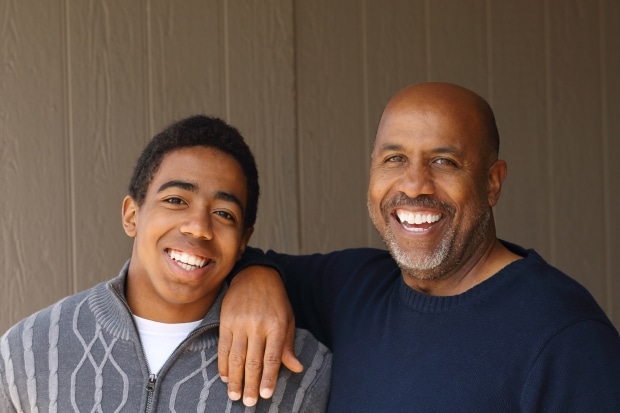Five Teen Problems That Are Totally Normal
Five Teen Problems That Are Totally Normal And How To Keep Your Cool
Everyone talks about how bad the Terrible Twos are, but unruly toddlers are nothing compared to some of the problems you’ll face once your kids reach their teenage years. Thankfully, most of the issues you’ll experience with your teens are totally normal.
The trick is to keep your cool — if you get upset, then they’ll get upset, and it’s a vicious spiral. Here are five common problems and some tips and tricks to help you keep your cool when they arise.
-
Bullying
Bullying is an enormous problem for teens around the world. In 2016, it was reported that as many as one out of every five students experienced harassment.
When you consider that there are more than 50 million students in primary and secondary schools in the country, that’s an astonishing number of students who are being bullied.
For teens, bullying can be hard to handle. They’ve reached that age where they aren’t independent yet.
They are still holding tightly to any modicum of independence they can get their hands on. They may be reluctant to discuss the situation with you, and they may demand that you don’t take any steps to intervene because “they’ve got it covered.”
Don’t flip out. It’s tempting to go all papa or mama bear when someone is threatening your teen, but that could just make matters worse.
Instead, make sure your teen feels comfortable talking to you about everything. From there, you can discuss the situation and decide together how best to proceed.
There’s a time to keep your cool, but if your child is at risk, now isn’t it.
-
Menstruation
Of course, this is just a concern for the parents of teenage girls, but we’re going to throw it in here anyway.
Menstruation is, quite literally, a regular part of life. Medical conditions aside, when your young teen girl reaches puberty, she’ll start experiencing a monthly period.
Make sure she’s prepared — start young with basic biology lessons, so she’s aware at some point, she will start bleeding. Don’t leave her to panic or think she’s dying just because you’re too squeamish to talk about periods.
Take the time to educate your boys, too. They might not need to know all the ins and outs of the process, but teaching them that it is a regular part of life can be a great way to help eliminate menstruation stigma, and take some of the pressure off of teen girls.
Wouldn’t it be great to know you could drop a tampon in class without worrying about the boys freaking out about it?
-
Appearance
Teens are incredibly focused on their appearance. They have to have the right clothes, have the right haircut and be the right size and shape, or they risk ridicule — or so they think.
Upwards of 40% of teen girls have been diagnosed with or show symptoms of an eating disorder.
The number of boys affected by these disorders is growing by the year.
Their teenage years are also the time where other things might negatively affect their appearance — acne, caused by changing hormones, or braces to correct crooked teeth. While many of negatives can be mitigated — for example, replacing traditional metal braces with clear braces like Invisalign can help make the process of teeth straightening less apparent, if not less uncomfortable — it still leaves teens feeling like they stand out.
For today’s teenagers, that’s not necessarily a good thing.
Like the bullying, the key to helping your teens deal with concerns about their appearance is to have an open door policy. Let them come and talk to you about anything, without fear of judgment or repercussions.
Work together to find a solution that works best for both of you.
-
Drug and Alcohol Use
The teenage years are a time filled with experimentation. For many teens, that also includes experimenting with drug and alcohol use.
It’s very tempting to flip out on your teens when they come home drunk or smell like pot, but take a step back before you react.
You were a teenager once, too. Can you honestly say you didn’t try things that you weren’t supposed to when you were a teenager?
Make it a rule your teen can talk to you or call you if they feel uncomfortable. Even if that uncomfortable feeling comes from being drunk or high.
Talk to them about the detrimental effects of drugs and alcohol, but don’t be judgmental. Teens are going to experiment, whether we want them too or not.
Instead of panicking and sticking them in a bubble until they’re 40, take a step back and look at it from their perspective.
-
Sex
This is a touchy subject for a lot of parents — no pun intended. It’s a meaningful conversation to have with your teens.
Don’t demonize sex. If you forbid your teens from doing something, they’re going to want to do it all the more.
Instead, take the time to talk to them about safe sex and educate them on their options. Teach them how to use a condom — and pull it over your foot to show your teens that no, their boyfriend isn’t “too big” to use a condom, no matter what he says.
Provide your teens, regardless of their gender, with contraceptive options. If you have a teen girl who is interested in sex, talk to her about her various options for birth control.
Sex education is severely lacking in public schools, so it’s up to you to make sure your teens have the correct information. Studies have found students who receive abstinence-only sex education are more than 50% more likely to experience teen pregnancy than those who received comprehensive training on sex and their options.
Don’t flip out. Losing your cool about sex will just end badly.
You want your teens to feel comfortable coming to you and talking about sex. Flipping out will send them to their friends or worse, to internet porn.
We have no problem with porn, but it’s not where you want your kids to get their sex education.
Drug and alcohol abuse by teenagers is a genuine and dangerous problem. The known adverse effects substance abuse has on adolescents are quite severe, including physiological and neurological damage. To prevent this, here are six methods of keeping your teen clean and away from substance abuse.







As a parent of a teenager, I found this article to be extremely useful. It was beneficial to learn about the factors that may contribute to your child’s ideal upbringing. Well, I’ll certainly keep the points addressed in mind to be a better parent.
Hi Prasanta,
I’m glad you found this post useful. One of the most comforting things in parenting is to know some challenges are not peculiar to your child and to find several tips to help your child.
Rae.
Hi Prasanta,
I’m glad you found this post useful. One of the most comforting thing is to know some challenges are not perculiar to your child and to find resources to help your child.
Rae.